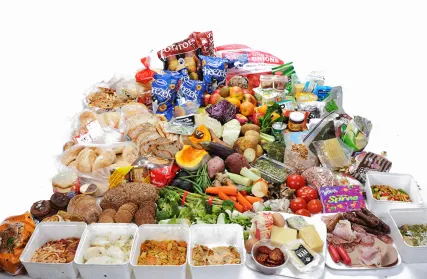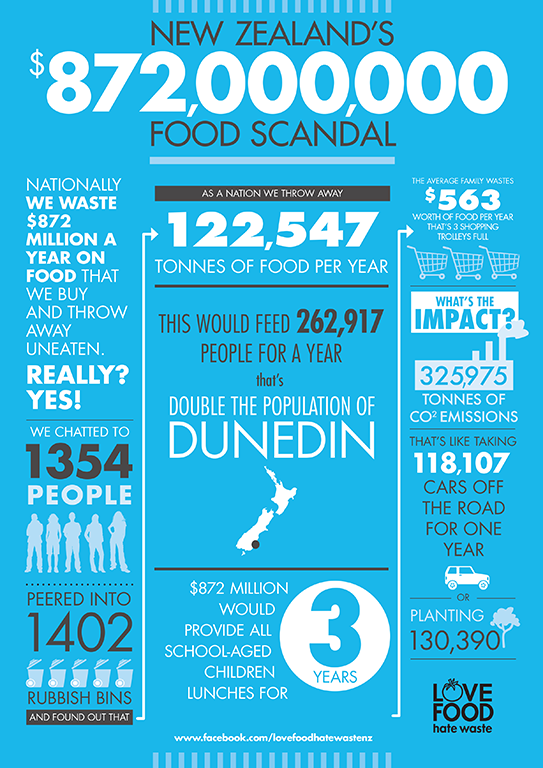 New Zealand families waste about $560 each year on food which is thrown uneaten into the rubbish bin. This adds up to a staggering $872 million for the whole country. It also results in 122,000 tonnes of edible food, enough to feed eight times the population of the Whakatāne for an entire year, going to landfill and generating greenhouse gases.
New Zealand families waste about $560 each year on food which is thrown uneaten into the rubbish bin. This adds up to a staggering $872 million for the whole country. It also results in 122,000 tonnes of edible food, enough to feed eight times the population of the Whakatāne for an entire year, going to landfill and generating greenhouse gases.
We’re proud to be part of the national Love Food Hate Waste NZ campaign, which aims to turn this around by inspiring and enabling people to waste less food.
As a Council, local efforts to reduce our food waste would reduce the amount of waste we transport from Whakatāne to landfill 190 km away. This would have a positive impact on rates, our carbon footprint and other associated environmental effects.
Bread, fruit and veggies, and meal leftovers are the most commonly discarded foods. The equivalent of 20 million loaves of bread is thrown into rubbish bins uneaten every year.
For practical tips on how to reduce your own food waste and save money, visit Love Food Hate Waste »
Meal Planner and more info
The LFHW team have a great selection of resources to help you plan your meals that are also designed to be zero waste. If something is leftover at the end of the week, they also have you bonus recipes for using it up.
- Tips on Meal Planning »
- Recipes »
- 9 ways to save money on your food bill »
- 10 top tips to tackle leftovers »
You might also like to consider starting your own home compost or adopting a dog - have you ever met a dog that doesn't love leftovers? Not only will you be reducing your food waste, you'll be saving a life - and sustaining one, by giving a dog a new forever home. See what foods you should never feed animals »
The amount of money we waste on food in the Whakatāne District per year would buy school lunches for all the district's schoolchildren for two and a half years.
Other organisations and groups
There are a great range of groups working to minimise food waste in New Zealand. You may be interested in setting up one of these groups in our District:
- Community Fruit Harvesting rescues surplus produce from gardens and orchards.
- Kaibosh Food Rescue – Based in Wellington, Kaibosh supports a number of food rescue efforts.

